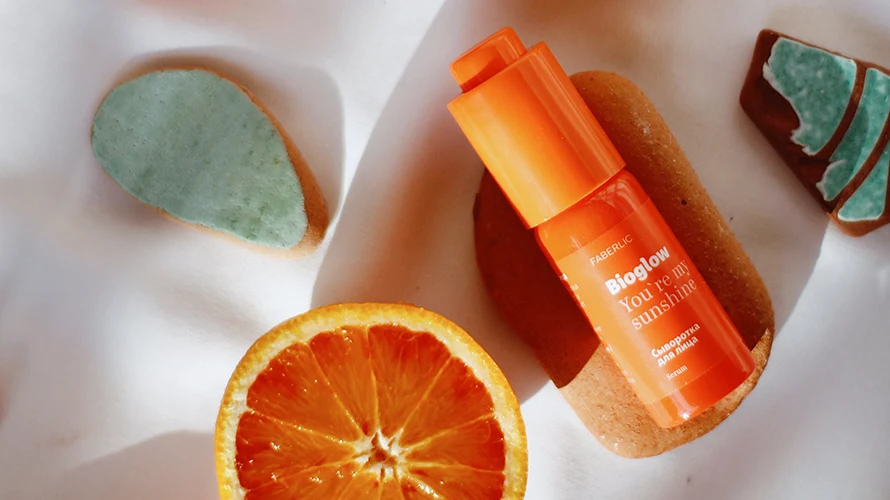A quick overview of the topics covered in this article.
Subscribe to the UKPACK newsletter to receive regular updates on the company, products, services, upcoming exhibitions and more.
Recycling has become an essential practice in today’s world, and it extends beyond paper and plastic. One often overlooked item that can be recycled is cosmetic bottles.
In this article, we will explore the importance of recycling cosmetic bottles, the recycling process, environmental and economic benefits, sustainable packaging alternatives, and offer valuable tips for effective cosmetic bottle recycling.
Why Recycle Cosmetic Bottles?
Cosmetic bottles are a significant contributor to plastic waste. By recycling these bottles, we can reduce the amount of plastic ending up in landfills or oceans, minimize resource consumption, and decrease the carbon footprint associated with their production.
Common Types of Cosmetic Bottles
Cosmetic bottles come in various shapes, sizes, and materials. Some common types include plastic bottles, glass bottles, and aluminum containers. Each type requires specific recycling methods to ensure optimal resource recovery and environmental benefits.
Recycling Process for Cosmetic Bottles
1. Sorting and Collection
The first step in recycling cosmetic bottles is proper sorting and collection. Consumers can separate their cosmetic bottles based on the material type, such as plastic, glass, or aluminum. Many recycling centers and specialized collection points accept cosmetic bottles for recycling.
2. Cleaning and Preparation
Before recycling, it is crucial to clean the bottles to remove any remaining product residue. Empty the bottles and rinse them thoroughly with water. For glass and aluminum containers, labels can be removed by soaking in warm soapy water. Plastic bottles should have their caps removed as they may be made of a different type of plastic.
Recycling Methods
Plastic Bottle Recycling: Plastic bottles can be recycled through mechanical recycling processes. They are sorted, shredded, melted, and then formed into pellets that can be used to manufacture new plastic products.
Glass Bottle Recycling: Glass bottles are melted down and reshaped into new glass containers or other glass products. The recycling process for glass bottles requires less energy compared to producing new glass.
Aluminum Container Recycling: Aluminum containers can be recycled indefinitely without losing their properties. They are melted and processed to create new aluminum products, such as cans or containers.
Repurposing and Upcycling
Apart from traditional recycling, cosmetic bottles can also be repurposed or upcycled. Creative individuals can transform empty bottles into storage containers, vases, or DIY crafts, reducing waste and giving the bottles a new lease of life.
Environmental Benefits of Recycling Cosmetic Bottles
Recycling cosmetic bottles offers several environmental benefits:
- Conservation of Resources: By recycling, we reduce the need for extracting new raw materials, conserving energy and water resources.
- Waste Reduction: Recycling reduces the amount of plastic waste ending up in landfills, decreasing pollution and environmental harm.
- Carbon Footprint Reduction: Recycling cosmetic bottles reduces greenhouse gas emissions associated with the production of new bottles, helping combat climate change.
Economic Benefits of Recycling Cosmetic Bottles
Recycling cosmetic bottles also brings economic advantages:
- Job Creation: The recycling industry generates employment opportunities, from collection and sorting to processing and manufacturing.
- Cost Savings: Using recycled materials to produce new bottles reduces production costs, making them more affordable.
- Market Demand: Increasing awareness about sustainability and eco-friendly practices has created a growing market demand for products made from recycled materials. Recycling cosmetic bottles aligns with consumer preferences, attracting environmentally conscious customers.
Sustainable Packaging Alternatives
To further promote sustainability, cosmetic brands can explore alternative packaging options. Some eco-friendly alternatives include:
- Refillable Containers: Implementing refillable programs allows customers to replenish their cosmetics using the same container, reducing waste from single-use packaging.
- Biodegradable Packaging: Utilizing biodegradable materials, such as plant-based plastics or compostable packaging, ensures that cosmetic bottles can break down naturally over time, minimizing environmental impact.
- Minimalist Packaging: Opting for minimalist packaging designs that use less material helps reduce waste and promotes a cleaner, more minimalist aesthetic.
Tips for Effective Cosmetic Bottle Recycling
Follow these tips to maximize your impact when recycling cosmetic bottles:
- Check Local Recycling Guidelines: Research the recycling guidelines specific to your area to ensure you understand which materials are accepted and the proper preparation methods.
- Empty and Rinse: Thoroughly empty and rinse cosmetic bottles to remove any leftover product. Clean bottles help streamline the recycling process.
- Remove Caps and Labels: For plastic bottles, separate the caps as they may be made of a different type of plastic. Remove labels from glass and aluminum containers to avoid contamination during the recycling process.
- Separate Materials: If you have multiple types of cosmetic bottles, separate them into different recycling bins or bags to facilitate the sorting process.
- Participate in Take-Back Programs: Some cosmetic brands offer take-back programs where they collect and recycle their own containers. Take advantage of these initiatives when available.
Challenges and Solutions
While cosmetic bottle recycling is beneficial, it faces certain challenges:
- Lack of Awareness: Many consumers are unaware that cosmetic bottles can be recycled. Raising awareness through educational campaigns can address this issue.
- Mixed Material Packaging: Some cosmetic bottles contain multiple materials, making recycling more complex. Promoting packaging designs that use easily separable materials can alleviate this challenge.
- Limited Infrastructure: In some areas, recycling facilities for specific materials may be limited. Encouraging investment in recycling infrastructure can help overcome this obstacle.
Future of Cosmetic Bottle Recycling
As sustainability continues to gain prominence, the future of cosmetic bottle recycling looks promising. Innovations in recycling technology, increased consumer awareness, and government initiatives can drive further advancements in the industry, making recycling cosmetic bottles more accessible and efficient.
Conclusion
Recycling cosmetic bottles is an essential step toward reducing plastic waste, conserving resources, and promoting a sustainable future. By following proper sorting, cleaning, and recycling processes, we can contribute to a cleaner environment, support the circular economy, and make a positive impact on the planet.
FAQs
1. Can I recycle cosmetic bottles with pumps or sprayers?
Yes, but it’s important to separate the pump or sprayer from the bottle before recycling. The pump or sprayer may contain metal or other non-recyclable components.
2. Are all cosmetic bottles recyclable?
Most cosmetic bottles are recyclable, but it depends on the specific materials used. Check the recycling guidelines in your area to determine which types of bottles are accepted.
3. Can I recycle cosmetic bottles with small amounts of product left inside?
It’s best to empty and rinse cosmetic bottles before recycling. Small amounts of residue are generally acceptable, but excessive product may contaminate the recycling process.
4. What should I do if my local recycling facility doesn’t accept cosmetic bottles?
If your local facility doesn’t accept cosmetic bottles, consider exploring alternative recycling options. Some cosmetic brands offer take-back programs, or you can search for specialized recycling centers in your area.
5. Are there any special considerations for recycling glass cosmetic bottles?
Glass cosmetic bottles can be recycled similarly to other glass items. However, it’s important to remove any metal or plastic components, such as caps or pumps, before recycling. Additionally, labels can be soaked off or removed to ensure proper recycling.

Content Manager at UKPACK. I have extensive experience in the packaging industry and specialize in creating engaging content. I’m passionate about staying ahead of industry trends.
How Do Airless Pump Bottles Work?
Airless pump bottles have become a staple in the beauty and skincare industries, offering a unique solution to preserve and dispense products. They provide a sophisticated method of protecting [...]
Ultimate Guide: How To Fill Cosmetic Tubes Effectively
Filling cosmetic tubes effectively is a crucial step in the cosmetic manufacturing process. Whether you’re working with skincare creams, gels, or liquid makeup, the goal is to ensure a [...]
30 Best Korean Skincare Brands You Need to Know
Korean skincare brands have taken the global beauty scene by storm, becoming a staple for skincare enthusiasts worldwide. Renowned for their unique formulations, cutting-edge ingredients, and comprehensive multi-step routines, [...]




